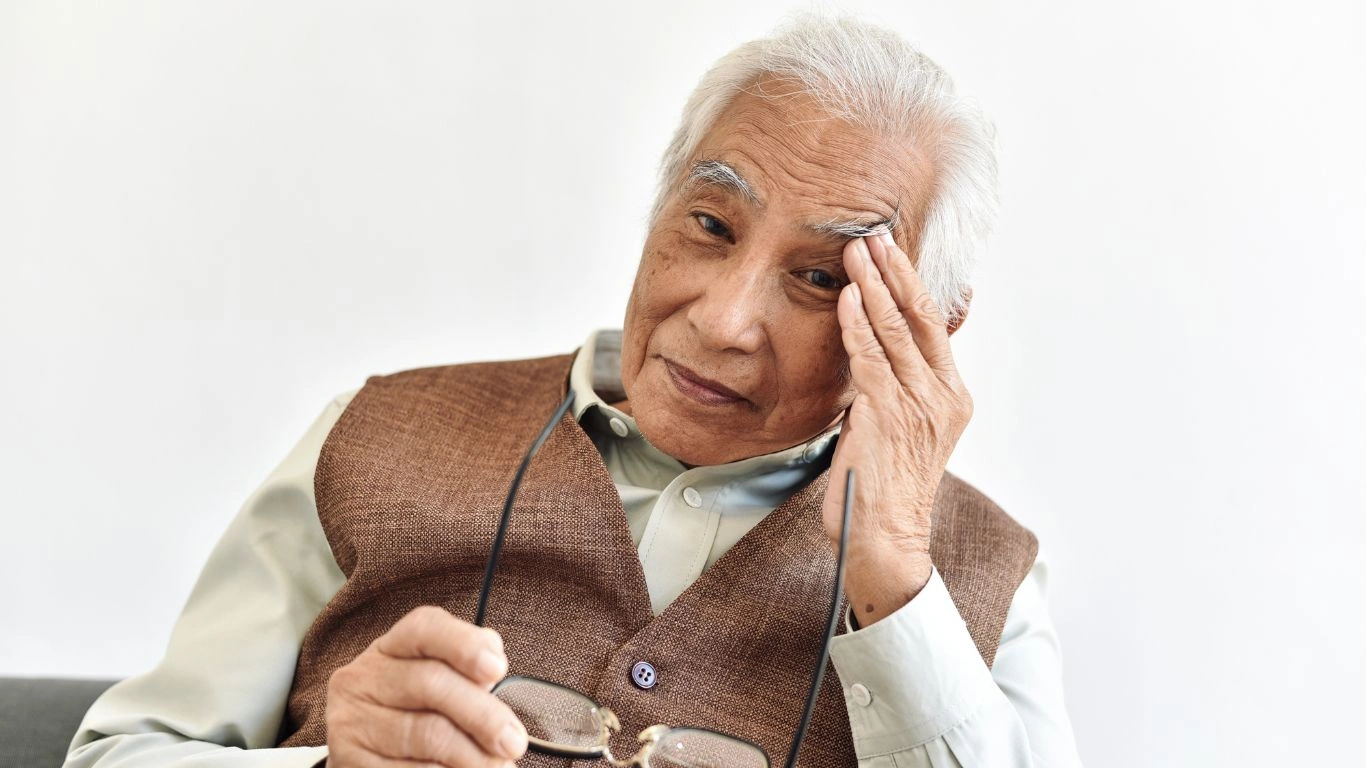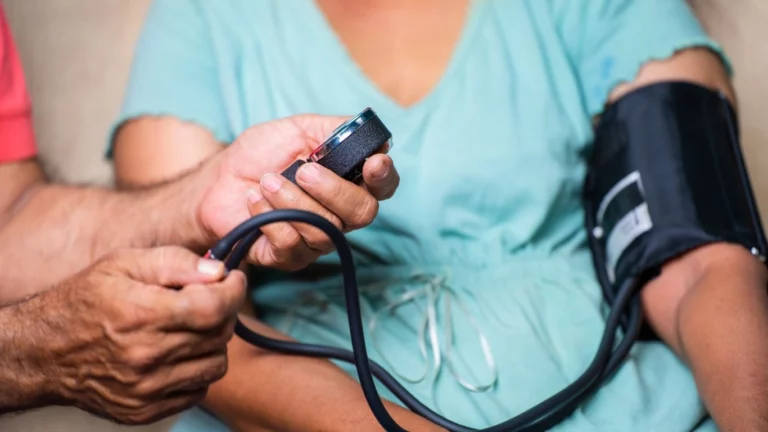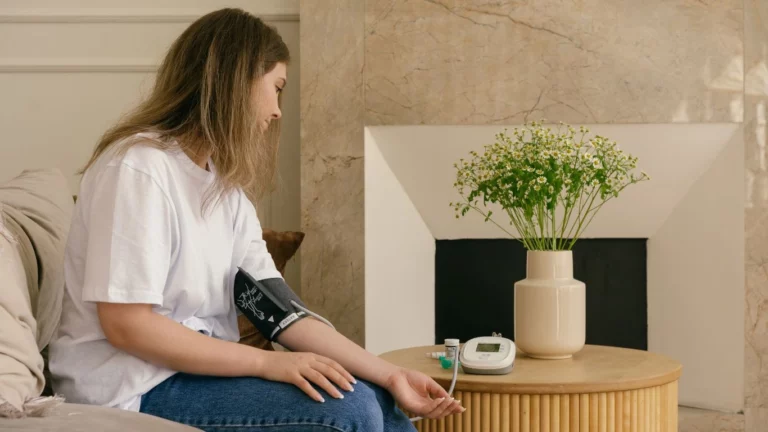Tips to Avoid High Blood Pressure Spikes – A Practical Guide
High blood pressure is a serious condition that can lead to a variety of health issues, but the good news is that you can take steps to avoid sudden spikes and manage your blood pressure effectively. Let’s dive into some practical and easy-to-follow tips that can make a big difference in your health!
If you’ve been diagnosed with high blood pressure (or hypertension), you already know how important it is to keep it under control. Sudden spikes in blood pressure can be dangerous, leading to potential heart problems, strokes, or kidney damage. But don’t worry—there’s plenty you can do to keep your blood pressure in check, and you don’t have to rely on medication alone. Let’s take a look at some of the best ways to avoid those scary spikes and stay on top of your health.
Why Do Blood Pressure Spikes Happen?
Before we jump into the tips, let’s quickly understand what causes these blood pressure spikes. Several factors can contribute to a sudden increase in your blood pressure, such as:
- Stress and anxiety: Emotional stress can cause your heart to pump faster, temporarily raising your blood pressure.
- Dietary factors: Consuming too much salt, caffeine, or alcohol can cause your blood pressure to rise.
- Physical inactivity: A lack of regular exercise can weaken your heart, making it harder to keep your blood pressure stable.
- Medications: Some medications can affect your blood pressure, leading to sudden spikes.
- Health conditions: Other conditions like kidney disease or hormonal imbalances can also cause blood pressure fluctuations.
Now that you know what triggers these spikes, let’s talk about how to prevent them.
1. Monitor Your Blood Pressure Regularly
The first step in controlling your blood pressure is knowing where you stand. Regularly monitoring your blood pressure at home can help you spot any sudden increases early. There are many affordable blood pressure monitors available today, and keeping track of your readings can give you valuable information about your health.
Make it a habit to check your blood pressure at the same time every day, ideally in the morning before you eat or drink anything. If you notice any significant spikes or drops, reach out to your healthcare provider to discuss next steps.
2. Eat a Balanced, Low-Sodium Diet
What you eat plays a huge role in your blood pressure. A diet high in sodium (salt) can cause your body to retain water, leading to higher blood pressure. The American Heart Association recommends limiting sodium intake to no more than 2,300 mg per day, with a goal of reducing it to 1,500 mg if you have high blood pressure.
Here are some foods that can help:
- Leafy greens: Spinach, kale, and Swiss chard are rich in potassium, which can help balance the negative effects of sodium.
- Whole grains: Brown rice, quinoa, and oats are good sources of fiber and can help reduce blood pressure.
- Berries: Blueberries and strawberries contain antioxidants that may help relax your blood vessels.
- Low-fat dairy: These are excellent sources of calcium, which helps maintain healthy blood pressure levels.
And don’t forget about cutting down on processed foods, which are often loaded with hidden sodium. Instead, cook fresh meals whenever possible, and use herbs and spices for flavor instead of salt.

3. Stay Active and Exercise Regularly
Exercise is one of the most effective ways to keep your blood pressure in check. Regular physical activity strengthens your heart, which helps it pump blood more efficiently, reducing the pressure on your arteries. Aim for at least 30 minutes of moderate exercise most days of the week. Activities like walking, swimming, cycling, and dancing are all great choices.
If you’re just starting, take it easy and gradually increase your activity level. Even small amounts of exercise can have a significant impact on your blood pressure over time.
4. Manage Stress Effectively
Chronic stress is one of the main contributors to high blood pressure. When you’re stressed, your body releases hormones that make your heart beat faster and your blood vessels constrict, leading to a rise in blood pressure. Finding ways to manage stress can help you keep your blood pressure steady.
Here are a few stress-busting techniques to try:
- Meditation: Taking a few minutes each day to practice mindfulness or deep breathing can help you relax and lower your blood pressure.
- Yoga: This combines gentle movements, stretching, and breathing exercises that can reduce stress and promote heart health.
- Progressive muscle relaxation: Tensing and relaxing different muscle groups can help ease tension in your body and reduce stress.
- Hobbies: Engaging in activities you enjoy, like reading, gardening, or crafting, can provide a mental break and keep stress levels under control.

5. Limit Alcohol and Caffeine
Both alcohol and caffeine can cause short-term spikes in blood pressure. If you drink alcohol, try to keep it moderate (no more than one drink per day for women and two for men). Opt for low-sodium beverages and avoid energy drinks that can contain high levels of caffeine.
When it comes to caffeine, try to limit your intake to one or two cups of coffee or tea per day. If you’re sensitive to caffeine, even small amounts may cause a noticeable increase in your blood pressure.
6. Get Enough Sleep
Lack of sleep can have a significant impact on your blood pressure. Studies have shown that people who don’t get enough sleep are more likely to develop high blood pressure. Aim for 7-9 hours of quality sleep each night to help keep your heart and blood vessels in good condition.
If you have trouble sleeping, try these tips:
- Establish a bedtime routine: Go to bed and wake up at the same time every day to regulate your sleep cycle.
- Limit screen time: Avoid screens (phones, computers, TVs) for at least an hour before bed, as blue light can interfere with your sleep.
- Create a restful environment: Keep your bedroom dark, quiet, and cool to promote better sleep.

7. Take Your Medications as Prescribed
If your doctor has prescribed medication to help manage your blood pressure, it’s important to take it exactly as directed. Skipping doses or adjusting your medication without consulting your doctor can lead to dangerous spikes in blood pressure.
8. Stay Hydrated
Dehydration can cause your blood pressure to drop, which may lead to dizziness or fainting. Make sure to drink plenty of water throughout the day. Staying hydrated helps your heart pump blood more efficiently, reducing stress on your circulatory system.

Conclusion
Managing blood pressure is all about consistency and making healthy lifestyle choices. By following these tips—monitoring your blood pressure regularly, eating a balanced diet, staying active, managing stress, and getting enough sleep—you can help avoid those dreaded blood pressure spikes and improve your overall health. Always consult your doctor if you have any concerns or need personalized advice.
Appendices
FAQs
- What foods can help lower blood pressure? Foods rich in potassium, magnesium, and fiber, such as leafy greens, bananas, and whole grains, can help lower blood pressure.
- Can stress cause blood pressure spikes? Yes, stress can cause a temporary increase in blood pressure, so it’s important to manage stress effectively.
- How much exercise is recommended for managing blood pressure? Aim for at least 30 minutes of moderate exercise most days of the week.
- How can I lower my blood pressure naturally? In addition to regular exercise and a healthy diet, stress management and proper sleep are essential for natural blood pressure control.
- Should I take medication for high blood pressure? If lifestyle changes alone aren’t enough, your doctor may prescribe medication to help manage your blood pressure.
References
- American Heart Association. (2024). Blood Pressure and Hypertension. Read More
- Smith, A. & Johnson, P. (2023). Hypertension: Prevention and Control. Journal of Cardiovascular Health, 45(2), 123-135. Read More
Disclaimer
The information provided in this article is for educational purposes only and does not substitute for professional medical advice. Always consult with a healthcare provider regarding your blood pressure or any other health concerns. Individual health needs may vary, and professional guidance is essential for personalized care.

Dr. Gwenna Aazee is a board-certified Internal Medicine Physician with a special focus on hypertension management, chronic disease prevention, and patient education. With years of experience in both clinical practice and medical writing, she’s passionate about turning evidence-based medicine into accessible, actionable advice. Through her work at Healthusias.com, Dr. Aazee empowers readers to take charge of their health with confidence and clarity. Off the clock, she enjoys deep dives into nutrition research, long walks with her rescue pup, and simplifying medical jargon one article at a time.







